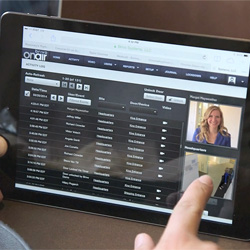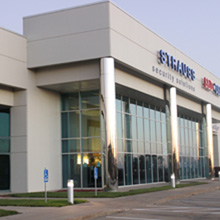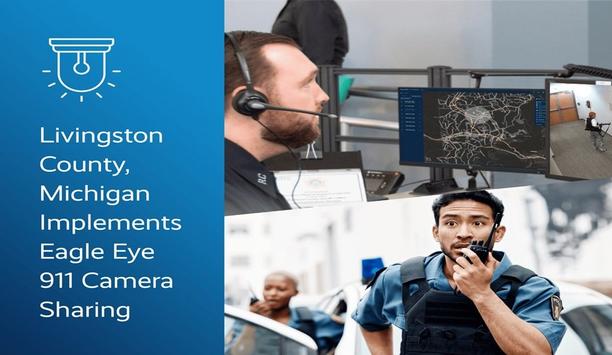 |
| Managed and hosted services allow users access from a variety of connected devices |
It’s not about hardware anymore, although quality components are a must. Now, it’s about how technology performs. For the systems integrator, there’s also an opportunity to provide essential services to keep customers connected.
As with many other businesses, the security industry is being “disrupted” and influenced by the cloud. Delivering outsourced security and IT services is becoming the norm. Cloud-based systems riding on the network and Internet accessibility also represent a more rapid proliferation of remote system monitoring.
Reboots, password changes, software upgrades and overall health can be checked, and many times performed, without a truck roll. Integrators can assess system status and ascertain possible necessary parts before setting foot on the customer’s premises. Services represent a winning formula that ultimately builds strong recurring monthly revenue (RMR) streams and solidly boosts the overall valuation of an integrator company that does it well.
Strauss Security Solutions in Des Moines has been serving Iowa for over 85 years. It began as a locksmith company and today continues to move solidly in the direction of managed services. The firm is a long-time Brivo managed services provider.
“To stay competitive in the security industry, you must keep up with technology and offerings,” says Karen Goldsworth, Strauss Security Solutions’ sales manager. “If we aren’t constantly adapting to the industry, we and our customers will be left behind.” She adds that Brivo, Bethesda, Md., was one of the first options available for web-hosted solutions.
Endless opportunities for RMR
 |
| Strauss Security Solutions offers the latest in high security products including locks, hardware, and security surveillance systems |
“With Brivo’s offerings, we are able not only to offer our customers a web-hosted card access solution but a CCTV option as well. Being able to integrate these offerings seamlessly with a hosted solution leaves endless opportunities for recurring revenue.”
Goldsworth says having both card access and CCTV options enhances the company’s revenue stream. “Our future goal would be to offer an even more advanced option of managed service. We work with many property companies and feel this would be a great benefit to them to have that type of management taken off of their workload.”
Doubling Up on Cloud Services
Lee Odess, vice president of Marketing and Enterprise Sales for Brivo, says the industry can expect to see high, double-digit, year-over-year growth in managed services, increased dealer engagement and end users requesting and expecting access control to be in the cloud.
He cites three significant trends with regards to the growing cloud market share in physical security:
1. Big Data: Now that more products are Internet-connected and spitting off data to the cloud, you can mine it for trends, mash it together with other data, and do predictive analytics, among other things. “What we are going to be doing with all that data is really exciting and changing the way the customer interacts with physical security,”says Odess. The security industry is |
2. Social Spaces: With products Internet-connected and able to communicate via Bluetooth, the “things” in the Internet of Things have the ability to now respond and react in real time. For instance, you are invited to a meeting. Inside the meeting calendar request you receive a “token.” When you walk into the lobby of the building, your phone expresses your identity to the visitor management system and signs you in. It then sends a text message that you arrived, calls the elevator, orders you a coffee, turns the lights on and pays for your parking. “You will be signing on to the physical world just like you do virtually to Amazon, and the spaces will respond back with a curated experience delivering friction-free interactions,” says Odess.
3. Wearables: Whether company-issued or brought in by employees, wearables will be interacting with physical security and need to be part of the ecosystem. “You already see it happening with the Apple Watch,” he says.
Systems integrators need focus, discipline and a continuous effort to make the services revenue stream work – but once they get there, the rewards will be a stronger company with more value for themselves and the end user.











































